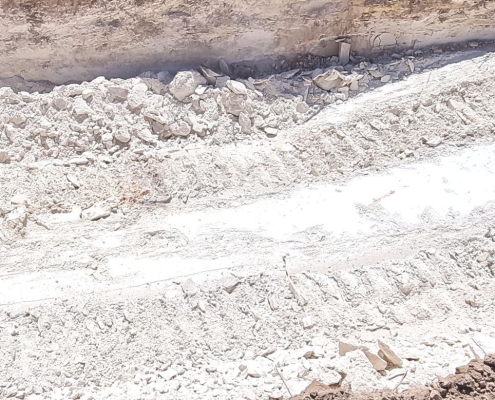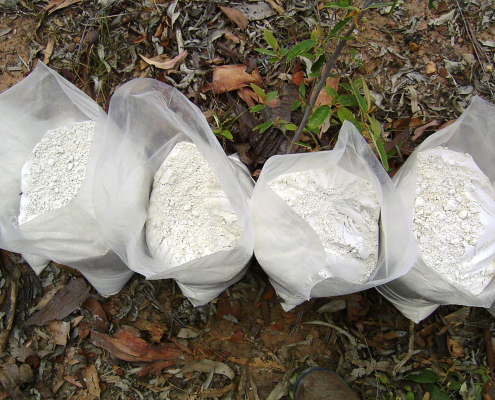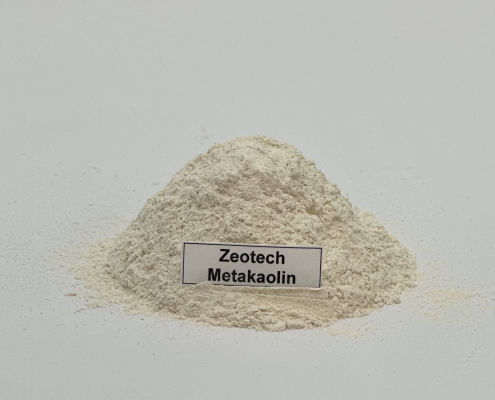Studies have shown metakaolin can enable the associated CO2 emissions of producing concrete to be reduced significantly.
Kaolin
Kaolinite is an industrial mineral belonging to the group of aluminosilicates. The term kaolin is used to describe a group of relatively common clay minerals with an enhanced concentration of kaolinite and is produced by the chemical weathering of aluminium silicate minerals. It is a soft, earthy, usually white, mineral (dioctahedral phyllosilicate clay).
Kaolin’s commercial attributes primarily revolve around being chemically inert over a wide pH range, brightness, film strength, whiteness, opacity, gloss, viscosity, low heat and low electrical conductivity, which leads to a diversified range of industrial applications.
Metakaolin
Metakaolin is a semi-calcined kaolin (produced typically at temperatures between 700°C and 800°C), which is used to enhance the performance characteristics of cement-based mortars, concretes, and related products. It contributes to increased compressive and flexural strength, reduced permeability and shrinkage, greater durability, reduces potential for efflorescent and control degradation caused by alkali silica reaction.
Research undertaken by Central Queesland University in early 2024 has confirmed:
- A high reactivity metakaolin (HRM) can be produced from a range of the Company’s Toondoon kaolin profiles.
- High reactivity metakaolin produced exceeds Australian Standard and ASTM International Standard for a manufactured pozzolan.
- The high kaolinite content of Toondoon’s raw ore, of between 80-90%, underpins a simple flowsheet and potential competitive cost advantage due to the limited beneficiation required to produce a high reactivity metakaolin.
Low-Carbon Concrete
Metakaolin is in demand as a supplementary cementitious material (SCM) that could advance low carbon cement and concrete by partially substituting clinker in Portland cement and concrete binder mixes.
Use of SCM’s is the most viable alternative to mitigate carbon dioxide emissions of the cement and concrete industries in the short term, and metakaolin is increasingly regarded as the most promising pozzolanic material for the future.
The cement and concrete industry represents circa 8% of global emissions and studies have shown metakaolin can enable the associated CO2 emissions of producing concrete to be reduced by up to 40%.
The Australian cement and concrete industry has declared its commitment to net zero carbon concrete by 2050.
Direct Shipping Ore (DSO)
Zeotech’s approved mining lease (ML 80126) hosts high-grade kaolin near surface, offering cost effective immediate access to direct shipping ore (DSO). The Toondoon project representing some of the highest-grade alumina, low iron raw ore kaolin in Australia.
The high alumina content will allow the ore to be highly suitable to a number of sectors including the white cement industry, refractories, and fibreglass manufacturing.




